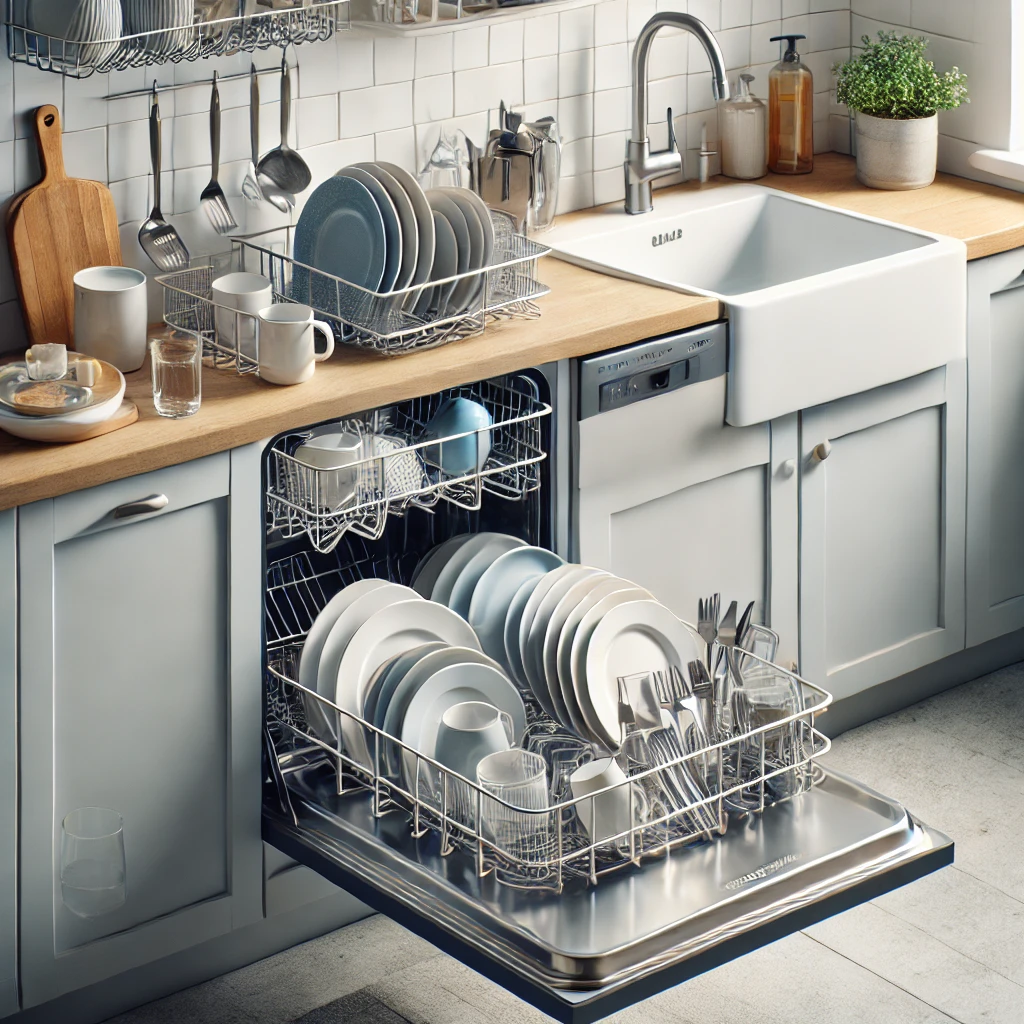
Should you rinse your dishes before putting them in the dishwasher?
It’s a common question in many households: should you rinse your dishes before loading them into the dishwasher? While rinsing may seem like the logical step to ensure cleaner results, modern dishwashers and detergents are designed to handle much more than you might think. Let’s dive into the pros and cons of rinsing and what experts recommend.
1. Why Rinsing Isn’t Always Necessary
Modern dishwashers are equipped with advanced technology and powerful detergents that make pre-rinsing unnecessary in most cases. Here’s why:
- Advanced Sensors: Many dishwashers have sensors that detect the level of dirt on your dishes and adjust the wash cycle accordingly. Pre-rinsing can confuse these sensors, leading to a less effective clean.
- Detergents Work Better on Dirty Dishes: Dishwasher detergents are formulated to cling to and break down food particles. Without grime to work on, the detergent may foam excessively and fail to clean effectively.
- Water Conservation: Skipping the rinse saves water. Pre-rinsing can waste up to 20 gallons of water per load, depending on your habits.
2. When Rinsing Might Be Necessary
While rinsing isn’t generally required, there are a few exceptions:
- Excessive Stuck-On Food: Large chunks of food or baked-on residues may not break down completely, so scrape or rinse these off before loading.
- Extended Wait Time: If you don’t run the dishwasher daily, rinsing can prevent odours and hardened food buildup.
- Old or Basic Dishwashers: Older models may not have the power or technology to handle heavy soiling, so a quick rinse could help.
3. How to Load Your Dishwasher Without Rinsing
If you’re ready to skip the rinse, here’s how to ensure sparkling clean dishes:
- Scrape Off Leftovers: Use a spatula or utensil to remove large food scraps.
- Avoid Overloading: Ensure dishes are spaced properly to allow water and detergent to reach all surfaces.
- Use the Right Detergent: Opt for a high-quality dishwasher detergent that’s designed for tough cleaning.
- Clean the Filter Regularly: A clogged filter can lead to poor cleaning results. Remove and rinse the filter every few weeks.
4. Benefits of Skipping the Rinse
- Saves Water: Reduces household water consumption.
- Saves Time: Speeds up your kitchen cleanup routine.
- Eco-Friendly: Aligns with energy-efficient dishwasher cycles and reduces your carbon footprint.
- Better Cleaning Results: Allows detergents to work as intended.
Conclusion
For most modern dishwashers, rinsing your dishes before loading isn’t necessary and could even hinder performance. Scraping off large food particles and loading your dishwasher correctly are usually enough to ensure clean, sparkling dishes. If you have an older model or don’t run your dishwasher daily, light rinsing may still be beneficial. Ultimately, understanding your dishwasher’s capabilities will help you get the best results with minimal effort.

